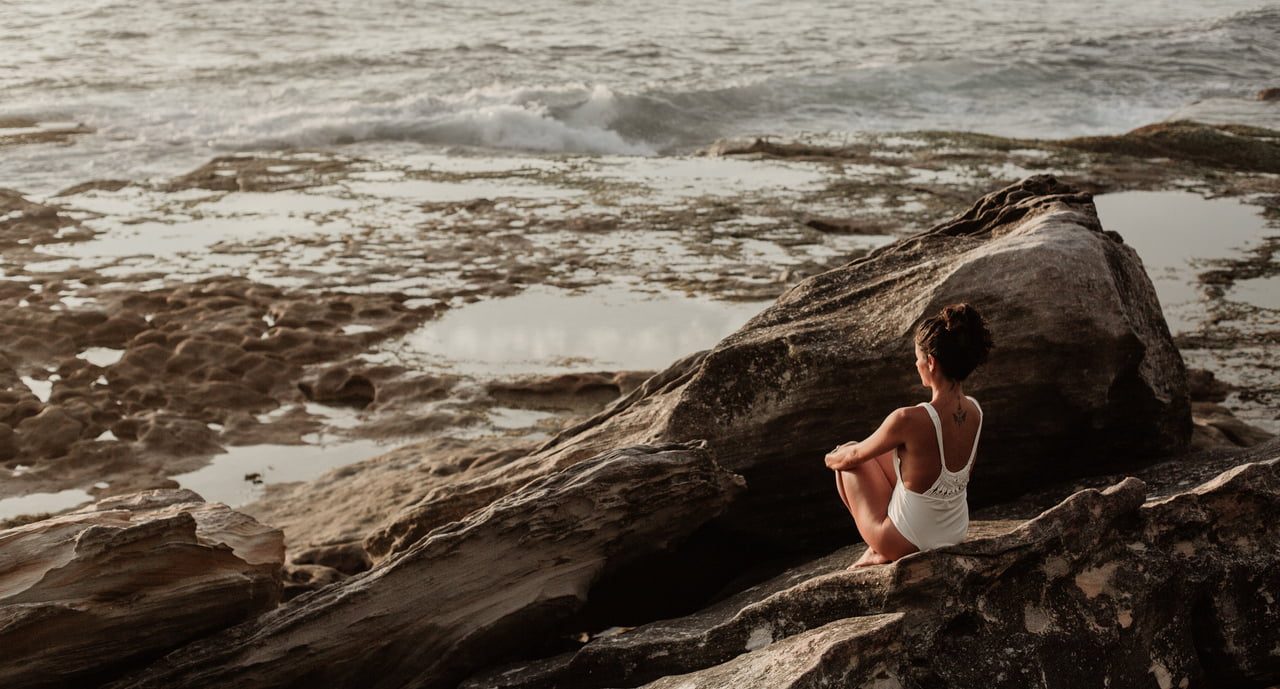How to Study in Australia – A Complete Guide
Why Do So Many International Students Choose to Study In Australia?

Ask ten international students why they chose Australia and you may get ten different answers, but we have compiled what we think are the top reasons to choose Australia as a study destination.
Australia is one of the world's most popular study destinations and there are good reasons why! Australia has the highest ratio of international students per head of population in the world, and by a large margin!
Hot fact; In 2019 Australia had 812,000 international students enrolled in the nation's universities and vocational institutions.
Could you see yourself studying in Australia? Read on to find out more.
Australia Has High-quality Education Institutes And Governing Education Systems.
Australia’s education sector includes world-class universities, outstanding vocational training institutes, facilities and lecturers, and includes well funded and internationally respected research.
In fact, where research is concerned in the top 8 Australian universities, 99 per cent of the research undertaken is world-class or above.
Australia’s universities consistently rank amongst the world leaders, and 11 of Australia’s universities ranked amongst the top 200 universities in the world in 2020.
In case you had concerns about unethical colleges, which can be rife in some countries, Australia has regulated education systems and governance which rigorously manage and audit all accredited education providers.
All educational institutions must abide by strict regulations put in place and enforced by the government or they risk having their accreditation removed, which would stop them from providing officially recognised qualifications.
Basically the Australian Government will shut down untrustworthy operators.
The Australian government actually has specific government-enforced regulation to protect international students from unethical education providers.
Some towns and cities even have dedicated international student support centres which offer support and advice on matters from job skills and work opportunities through to your legal rights.
In addition to a great education sector, Australia is a technologically advanced nation which provides opportunities for employees to work with the latest greatest technology. Many leading tech brands started in Australia and this is likely to continue and even accelerate as Australia as a nation continues to invest in high tech startup businesses.
In Australia, International Students Live And Study In Safety
Australian cities have very low crime rates in comparison with global averages. Our streets, parks, playgrounds and public spaces are clean and safe.
The country is protected and served by state and federal emergency services with excellent records in maintaining the status quo, and our healthcare services and facilities are outstanding.
You will need International Student Health Insurance on a Student Visa though, so make sure to check into that.
The Famous Aussie Outdoor Lifestyle

No article about Australia would be complete without touching on the famous Aussie outdoor lifestyle!
People have been moving to Australia for many years, often due to the draw of the laid back Australian attitude to life, and the great outdoors.
Don’t expect everything to be beaches, barbeques and relaxing though, as you can find places and spaces that suit the pace of life you desire at any time.
You can find thriving cities with buzzing nightlife, and outstanding, world-class cuisine from all over the world. Since Australia attracts immigrants, people have moved here from every corner of the globe, often bringing their local food expertise with them.
When you tire of city life you can escape to some of the best beaches in the world. And we measure beaches in tens of kilometres here!
Beyond cities and beaches, we have some of the greatest unspoilt wilderness in the world, as well as 20 UNESCO World Heritage Sites. In fact, Australia has more natural UNESCO World Heritage sites than any other country.
Here are three of the most amazing sites;
The Great Barrier Reef is the largest coral ecosystem in the world by a large margin, making it one of the richest, most bio-diverse environments on the planet.
Interesting Fact; Australia is also the only country in the world where two World Heritage sites meet, and at Cape Tribulation, you can enjoy the Daintree rainforest, which is in Queensland’s Wet Tropics as well as the Great Barrier Reef as it fringes the coast.
The Gondwana Rainforests of Australia are among the oldest in the world, and contains the largest and most significant remaining stands of subtropical rainforest in the world as well as the largest and most significant areas of warm temperate rainforest.
The Greater Blue Mountains which are easily accessible from Sydney where most of the natural bushland is of high wilderness quality and remains close to pristine.
The park of 1 million hectares is almost entirely free of structures, earthworks and other human intervention, with amazing plant and animal life.
Low air pollution, clean parks and beaches and well maintained public facilities can be relied on throughout Australia.
Live In A Comfortable, Welcoming Multi-cultural Society

Australia and in particular Australian cities are multicultural melting pots welcoming to diverse nationalities.
We have a high standard of living, great quality healthcare, transport and education, and our governments spend consistently on infrastructure all of which is well beyond global averages.
Improve Your Skills Through Life & Work Experience
One area that’s often forgotten about with regards to personal growth during study is the possibility to acquire skills and experience through cultural immersion.
If you want to get better at English, total immersion in an English speaking country can be more effective than any course.
In addition to language, the Australian education environments tend to breed flexible, innovative thinking and courses are built to turn out “job-ready” individuals who can immediately gain employment and put to use the skills they have been learning.
There is a large global demand for business and industry leaders who can deliver innovative solutions to customer and business challenges, and Australian education can be the perfect springboard.
Many courses include work experience programs and internships which give you vital hands-on experience, making you far more valuable to a future employer than a purely theoretical course can.
Some work experience students also get taken on full time by the employer they are placed with!

Student Visas
Student visas are essential if you want to study in Australia. (Did you know international students can get an Australian qualification without leaving your home country?)
For international students they are a way to achieve a dream that millions of people aspire to - study, live and work in Australia.
The visas are relatively easy to attain and reasonably cheap. At the time of writing the cost is $620 AUD for Student visa (Subclass 500) with some people being exempt from the fees. You can check the costs here.
There are some eligibility requirements that you will have to meet, so it’s a good idea to check them out straight away before you get your heart set on studying in Australia.
Australian Student Visa Requirements
Firstly you must be enrolled in a full-time course which is registered on the Commonwealth Register of Institutions and Courses for Overseas Students, also known as CRICOS.
You need to meet the English language requirements.
Many Australian educational institutes will require and IELTS 6 score or greater, although some also offer English language courses which will get you up to the standard they require.
For example, the University of Sydney offers a Direct Entry Course for international students who have received a conditional offer for a degree course.
You will also need to prove you can afford to live in Australia without government support.
This means you will need to have adequate health care coverage for you and any family member accompanying you, and you will need to prove that you have enough money to cover your stay in Australia.
You can read all about Australian student visas at the Australian Department of Home Affairs website.
How To Make A Great Education Affordable

Make Education Affordable By Working And Earning While You Study
International students in Australia are allowed to work up to 20 hours per week. This can completely offset the expenditure of living and studying in Australia, and of course, once you graduate you will have all that valuable work experience too.
There are many Australian businesses that rely on part-time students to provide their workforce, so find a position should not be too difficult. Working conditions are usually very good even for part-time staff, and maybe you will be lucky enough to work in a cafe across from the beach!
After You Finish Studying, Transition Into A Great Job.
For international students who have completed a CRICOS course in Australia, there is the option to apply for one of two graduate work visas, which allow unrestricted work anywhere in Australia.
Temporary Graduate Visa (Subclass 485)
The Graduate Work Stream
This is the visa for graduates of non-degree courses whose skills and qualifications are relevant to specific occupations that are in demand in Australia.
You can work anywhere in Australia, but your occupation must be on the skilled occupation list, maintained by the Department of Home Affairs.
This visa is normally for up to 18 months.
The Post-Study Work Stream
If you are planning to sit a degree course you will be able to apply for this visa which has some notable advantages.
Once you graduate with a degree you will be able to live and work where you like, and bring your family with you.
Typically visas are valid for 2 to 4 years, depending on your qualifications.
How Much Can An International Student Earn In Australia?
While studying you will be limited to a maximum of 20 hours per week.
There is a minimum wage that employers can pay you which changes somewhat depending on your age, although you may be able to find work that pays well above the minimum.
If you are over 20 you will receive at least the full minimum wage of $19.49
| Age | Percentage of the full minimum wage | Hourly rate |
| Under 16 | 36.80% | $7.17 |
| 16 | 47.30% | $9.22 |
| 17 | 57.80% | $11.27 |
| 18 | 68.30% | $13.31 |
| 19 | 82.50% | $16.08 |
| 20 | 97.70% | $19.05 |
| 20+ | 100% | 19.49 |
*These figures are correct as of June 2020 - see here for up to date minimum wages.
If you can land a somewhat more skilled role you could expect more in the region of $20 - $30 per hour, paying you $400 to $600 per week.
How Much Will It Cost To Study In Australia?
Studying in Australia can be expensive, but if you’re think smart it may still be affordable, and working part-time could mean that it’s within your reach.
So Let’s Look At Course Costs First.
According to studyinaustralia.gov.au these are typical education costs;
- School - $7,800 to $30,000
- English language studies - Around $300 per week depending on course length
- Vocational Education and Training (Certificates I to IV, Diploma and Advanced Diploma) - $4,000 to $22,000
- Undergraduate Bachelor Degree - $20,000 to $45,000*
- Postgraduate Masters Degree - $22,000 to $50,000*
- Doctoral Degree - $18,000 to $42,000*
There are ways to reduce the costs above, especially if you need to do a Vocational Education and Training (VET) course prior to your degree.
Edmund Barton College offers Nationally Recognised Training and qualifications in business from certificate III through to diploma, which is enough to apply to university.
The difference is with Edmund Barton you can do your training online in your home country!
That means, no travel expenses, no additional living costs, and you still come out with an Australian qualification that is a pathway to direct entry to university.
As a huge bonus, our diploma courses will usually count towards your degree course, which saves you time money towards your degree (our online courses are MUCH cheaper), at saves you study time at university (more beach time?)
Click here to find out more about how you can get an Australian qualification from your home town.
Now Let’s Talk About Living Costs
Australia is not a cheap place to live, so you should be well aware of living costs before planning to study here. As we laid out earlier you can offset the costs by working part-time.
The government has set figures it expects people to need in order to stay in Australia, and as part of your visa application, you will need to show you have these figures available to you.
This does not mean you have to spend all the money, and if you can live frugally, and work part-time, you might not spend much or even any of it.
As of October 2019, the 12-month living costs are;
For students or guardians - AUD$21,041
For partners coming with you - AUD$7,362
For a child coming with you - AUD$3,152
Insiderguides.com.au has a great Cost of Living Calculator which can help you figure out your budgets.
According to studyinaustralia.com.au the other expected living costs are shown below;
Accommodation
Hostels and Guesthouses - $90 to $150 per week
Shared Rental - $95 to $215 per week
On-campus - $110 to $280 per week
Homestay - $235 to $325 per week
Rental - $185 to $440 per week
Boarding schools - $11,000 to $22,000 a year
Other living expenses
Groceries and eating out - $140 to $280 per week
Gas, electricity - $10 to $20 per week
Phone and Internet - $15 to $30 per week
Public transport - $30 to $60 per week
Car (after purchase) - $150 to $260 per week
Entertainment - $80 to $150 per week
Is It Expensive To Study In Australia?
Well, it’s certainly not amongst the cheapest in the world.
According to a study done in 2017, and referring to the 2015/2016 school year, Australia had an average annual tuition cost across bachelors and masters degrees of $4,841. In comparison, Canada was $4,963, Chile was $7,695, Korea between $2,635 and $6,846.
Which country is the most expensive to study?
Perhaps unsurprisingly, the United State topped the OECD list as the most expensive yearly tuition fees at $6,347 per year.
At the lower level, most European countries were well below, but only for European students. Japan was $5,215 and Israel $3,095.
At the end of the day though, it all comes down to where do you want to go to study, and how can you make that a reality?
Any OECD nation is likely to give you a great education and great prospects though.
Which Country Is Best For International Students?

The best choice is likely to be the one that suits you best and fits your budget, and there are many countries that provide outstanding options to international students.
Interesting fact; Australia ranked 4th by OECD in international PhD students destination after US, UK and France.
Many of these countries have governments that actively attract international students and many organisations that aggressively market into countries that can provide them with international students.
According to heysuccess.com, the top countries to study in worldwide are;
-
- France
- USA
- Germany
- Canada
- Taiwan
Argentina - Australia
- South Korea
- United Kingdom
- Denmark
Is It Cheaper To Study In The UK Or Australia?
This is hard to say as currency fluctuations may mean the difference between them rather than the local economy.
To help you work out which is more affordable at the time you want to study you should check the currencies at xe.com.
Fact: The Australian dollar was originally created to be equal to £2 Stirling.
In our opinion, where one is (or seems) cheap, the other may seem expensive and vice versa.
- Petrol in the UK is around twice the cost of Australia.
- Gas and electricity are probably more expensive in the UK.
- Australia is somewhat more expensive for groceries.
- In Australia buying a car is more expensive than the UK (but cars don't rust as we don't salt the roads!).
- Accommodation may be similar costs but varies wildly depending on the city you are in. Sydney and London are both extreme in this respect and are far more expensive than other cities for accommodation.
- Eating out and entertainment are pretty similar.
- Both offer free access to museums and art galleries.
The biggest cost difference is likely to be your tuition, travel and accommodation costs, so research them if you are considering the UK vs Australia on costs alone.
Study In Australia Faq

Is College The Same As University In Australia?
No, although there can be an overlap of courses provided.
Colleges tend to offer vocational courses, aimed at getting students work ready for a specific career, and universities offer degrees courses and PHDs and contrate much more on academic and deep and wide understanding.
There is significant cross over too.
To explain further, Australian education is split into two sectors.
VET Sector (Vocational Education And Training)
Vocational Education and Training is designed to build workplace-specific skill and knowledge, and graduates should leave the course ready to take a job in their chosen field.
People take VET courses for 3 primary reasons;
- Improve their skills for their current job.
- Improve their job prospects and enter a new industry will relevant skills.
- Gain access to a university course.
The is a very wide range of subjects and courses, and VET covers areas. Often the subjects are highly specific, focusing on very specialised careers, like a Certificate III in Beekeeping, but much more general ones exist too which open up a world of careers, like our own Diploma of Business.
VET also offers a pathway to university for both domestic and international students. A VET course is often a prerequisite for a place at an Australian university and for international students, it is often essential. Some universities do recognise qualifications gained in one’s home country, but a VET course will fill the gap if this is not the case.
If your goal is a particular degree course or a particular university it’s a good idea to start there and work backwards to align the VET courses you may need.
At Edmund Barton College we are really well-positioned to help international students gain access to university through VET, as we can deliver Australian VET courses and award qualifications to you while you are still at home. All you need is a computer and an internet connection!
VET providers are often called “colleges”, or “institutes” many of which are privately owned, but also include the state-owned TAFE’s (Technical and Further Education).
University Sector
International students represented on average 26.7% of the students attending Australian universities
If your aim is to get into a profession, research or just to reach a pinnacle in your field, then universities are where you should be looking to attend.
Australia has an enviable university sector and you will certainly be able to find a course that will take you where you want to go.
Universities do offer VET training as well as degrees, masters and doctoral degrees.
Understanding The Australian Tertiary Framework (AQF) Levels
In Australian tertiary education is based around the Australian Qualifications Framework (AQF) covering the national system of qualifications in Australia encompassing higher education, vocational education and training and schools.
Understanding this simple framework makes it easy to figure out what kind of institution you need.
Do note, though that there is overlap, and some colleges offer degrees, and some universities offer VET courses.
| AQF Level | Award | Institution Type | Expect Duration |
| 1 | Certificate I | TAFE, RTO | 05. to 1 year |
| 2 | Certificate II | TAFE, RTO | 05. to 1 year |
| 3 | Certificate III | TAFE, RTO | 1 to 2 years |
| 4 | Certificate IV | TAFE, RTO | 0.5 to 2 year |
| 5 | Diploma | TAFE, RTO, Uni | 1 to 2 years |
| 6 | Advanced Diploma | TAFE, RTO, Uni | 1 to 2 years |
| 7 | Bachelor Degree | University, | 3 to 4 years |
| 8 | Bachelor Honours Degree, Graduate Certificate, Graduate Diploma | University | 05. to 1 year |
| 9 | Masters Degree | University | 1 to 4 years |
| 10 | Doctoral Degree | University | 3 to 4 years |
How Many Universities Are In Australia?
In 2019 there were 43 universities in Australia. 37 of these are publicly owned, and 3 of them privately owned. 2 are international private universities.
Of those, a coalition of universities called the Group of Eight (G8) has formed as the top eight research-intensive universities, which are some of the largest and oldest universities in Australia. The G8 are consistently featured in the top 100 universities worldwide.
New South Wales
Australian Catholic University
Charles Sturt University
Macquarie University
Southern Cross University
University of New England
University of New South Wales
University of Newcastle
University of Sydney
University of Technology, Sydney
Western Sydney University
University of Wollongong
Queensland
Bond University
CQ University
Federation University of Australia
Griffith University
James Cook University
Queensland University of Technology
University of Queensland
University of Southern Queensland
University of the Sunshine Coast
Victoria
Deakin University
Federation University of Australia
La Trobe University
Monash University
RMIT University
Swinburne University of Technology
University of Divinity
University of Melbourne
Victoria University
South Australia
Carnegie Mellon University
Flinders University
Torrens University Australia
University of Adelaide
University of South Australia
Northern Territory
Charles Darwin University
Tasmania
University of Tasmania
Western Australia
Curtin University
Edith Cowan University
Murdoch University
University of Notre Dame Australia
University of Western Australia
Australian Capital Territory
Australian National University
University of Canberra
How Many Colleges Are In Australia?
Australia has a large number of colleges, many of them highly specialised.
At the moment there are around 4000 Registered Training Organisations (RTO). All RTOs are regulated and are allowed to award Nationally Recognised Training courses and qualifications.
Any colleges that are not RTOs will not be able to award you with a nationally recognised qualification like a certificate IV or a diploma, and will not usually be recognised by a university.
Of these 4000, around 1500 are CRICOS institutions which can take international students on student visas. Note; this number includes all Australian universities as well as TAFEs and RTOs.
What you need to study in Australia

The main requirements for studying in Australia are;
English Language Ability
Most Australian colleges have a minimum requirement of IELTS 6 or higher for entry into a course. This is to make sure that you will be able to understand the course materials and lectures, and from there on graduate and claim your award.
Many colleges and universities offer IELTS training courses which will get you up to a high enough level.
At Edmund Barton, we do not insist on any IELTS score, but we do recommend that you are at level 6 or higher.
Our courses are self-paced though, so if it takes you longer to understand because of your English ability, this will not stop you gaining your award. And since you can do this from your home country you can save many thousands of dollars by taking the foundational courses at home. It saves on the cost travel, accommodation and additional course fees of doing an IELTS course, followed by a Certificate IV, followed by a diploma in Australia.
Can I Study In Australia Without IELTS?
The short answer is maybe.
Some Australian colleges and universities require IELTS only, while others may accept other proof of your English proficiency. Since you will be studying in English even if there are no requirements you still need to make sure you can understand English well enough to take the course.
Some institutes will recognise the education you have previously completed that was in English, so taking and passing one of our business courses could possibly get you over the mark.
Since IELTS is a test and a grade, not a course, you can bring your English up to scratch in any way you like, and just take the test ( there are also free practise tests online).
We really love a smartphone app called Duolingo. It's available for Android and iPhone, and it’s free. If you have time before you need to apply, download the app today, and practice your English every day. It’s easy to use and a fun way to learn another language.
Required Academic Achievements
Many colleges have specific requirements of academic achievement or work experience to gain access to a course, and all universities will have entry requirements.
At Edmund Barton College we don’t believe in entry requirements of this nature, so with us, you can sit any course at any time. We will advise you on the best fit for your skills, knowledge and experience, but if you want to jump straight into a diploma you can do so. If you find you struggle, you can always buy a certificate II or a certificate IV as a foundation course, complete that and then pick up the diploma where you left off.
For universities, you will often need a recognised qualification that is relevant to the course you are applying for.
For example, if you wanted to study a Bachelor of Business you may need to take a Diploma of Business first.
Visa Requirements
The student visa you need depends on your course, but usually, it will be a Student Visa 500.
This visa allows you to participate in eligible study courses, and bring along family members to Australia.
You must, however, be enrolled in an eligible course in Australia, and you must prove you have enough money for your stay.
You will also need to meet health and good character requirements.
Overseas Student Health Care Cover
You will need to take out health care coverage for you and any family members coming with you. This cover is mandatory and will cover you for any medical or hospital care that you need during your stay. It also helps pay for prescription medicines and includes emergency care and ambulance transport.
What Is The Age Limit To Study In Australia?
There is no age limit to study in Australia.
There are some differences if you are below 18, such as the minimum wage you can be paid working part-time, but you can still come to Australia to study at any age.
How To Save Money And Get The Best Value From Studying In Australia

What Is The Cheapest Course To Study In Australia?
This is a hard question to answer as colleges and universities are in competition with each other and may adjust their prices when a competitor does so. Additionally, some colleges may drop their prices due to market trends of the time of year.
However, we can say for sure what the absolute cheapest way to get an Australian Qualification from overseas is, and the cheapest way to get entry to a degree course at an Australian university is.
Take a 100% online course at Edmund Barton without leaving your hometown. Pass the assessments and you will have achieved an Australian qualification.
Our courses are priced competitively, and you pay exactly the same price as our Australian students, which is usually not the case if you study a CRICOS course.
Check out what Tariq had to say when he graduated while living in the United Arab Emirates.
Can A Scholarship Allow You To Study In Australia For Free?
Yes, it is possible to get a scholarship to study in Australia as part of the Australia Awards Scholarships program.
You need to be a citizen of a developing nation and you need to come to Australia so that you can learn new skills to take back home with you so you can help your country develop.
The scholarship can cover your fees and costs to study in Australia.
To see which countries are eligible for scholarships, see this list. Australia Awards participating countries.
At the time of writing the eligible countries are;
Asia
Pacific
Africa
-
- Australia Awards Africa eligibility criteria
- Botswana
- Ghana
- Kenya
- Madagascar
- Malawi
- Mauritius
- Mozambique
- Nigeria
- South Africa
- Tanzania
- Zambia
- Australia Awards Africa eligibility criteria
This does not mean you can travel and study without a visa however, so remember to get a Student visa 500, or another applicable visa.
Under a scholarship, you will have to return to your home country for a minimum of two years after your scholarship ends.
Additionally, you cannot be a permanent Australian resident or citizen, nor can you be in the process of applying for residency or citizenship.
Australian University Scholarships
Some universities also have their own scholarship programs, so check these out to see if they fit.
-
- (UNSW) University of New South Wales Scholarships
- University of Sydney https://sydney.edu.au/study/finances-fees-costs/scholarships.html
- (UTS) University of Technology Sydney
- (UWS) Scholarships | Western Sydney University
- (ANU) Australian National University Scholarships & support
- University of Melbourne https://futurestudents.unimelb.edu.au/admissions/scholarships
What You Can Study In Australia Under A Scholarship?
You can study at some TAFEs (Technical and Further Education), and you can apply for undergraduate and postgraduate courses.
What Can You Get If You Win A Scholarship To Study In Australia?
Plenty actually, they are very generous!
Your scholarship will include the following benefits:
-
- Your full tuition fees to the college or university you were accepted at.
- Return air travel
An allowance to help set you up in Australia - Spending money to go towards your living expenses.
Are You Still Interested In Studying In Australia?
If you have any questions feel free to jump on our live chat or email us any time, we'd love to hear from you.
We understand choosing an education can be daunting, and doubly so when you are considering overseas as a study destination, so we'll do what we can to help you decide if this is right for you.
What ever you choose, we hope you'll have a great time on this exciting adventure!


